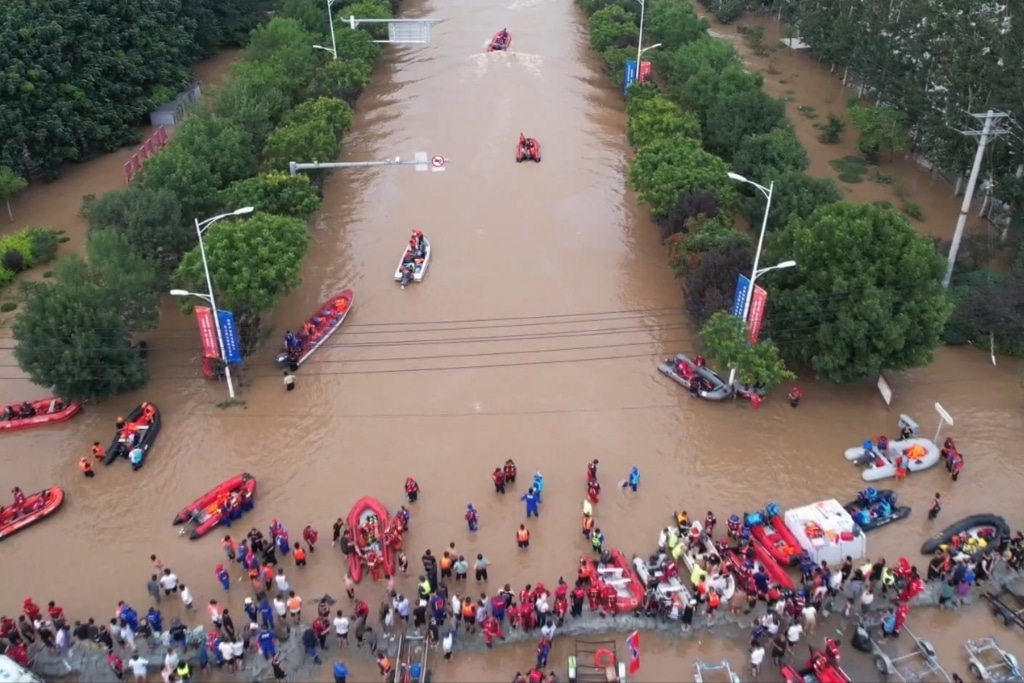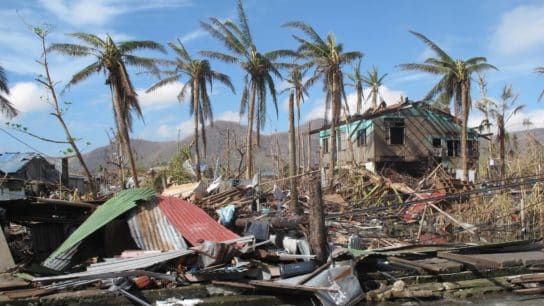While significant, the economic toll was lower compared to the same period last year, when extreme weather events racked up more than 93 billion yuan (US$12.9 billion) in economic losses.
—
Natural disasters in China affected over 23 million people and resulted in direct economic losses of 54.11 billion yuan (US$7.55 billion) in the first half of 2025, Reuters reported on Tuesday citing official data from the emergency response ministry.
307 people were reportedly dead or missing and 620,000 faced emergency evacuation as a result of earthquakes, landslides and flooding, Shen Zhanli, a ministry’s spokesperson, told reporters at a press conference on Tuesday. The latter accounted for 90% of the total economic damage – some 51 billion yuan – and nearly a third of the total deaths. Droughts, hailstorms and localized forest fires also affected the country.
347,200 houses were damaged and nearly 30,000 houses were destroyed, 28.7% more compared to the same period last year, while 2.19 million hectares of crops were damaged as a result of natural disasters, Reuters reported.
While significant, the economic toll was notably lower compared to the same period last year, when extreme weather events racked up more than 93 billion yuan (US$12.9 billion) in economic losses.
A national comprehensive natural disaster monitoring and early warning platform is being developed, utilizing predictive assessments and simulation models to track disasters, especially typhoons and floods, Zhanli added. These typically peak between late July and early August, coinciding with China’s main flood season.
Other adaptation and mitigation efforts include improving weather forecast’s accuracy and speed, strengthening remote sensing systems, and deploying drones for real-time disaster assessment, situational analysis, and search-and-rescue operations, ensuring faster and more precise emergency responses.
Climate Change
According to the Intergovernmental Panel on Climate Change, the most authoritative scientific body on the subject, human-induced greenhouse gas emissions have led to an increase in both the frequency and intensity of some weather and climate extremes since pre-industrial times.
Climate change is intensifying the water cycle, bringing more intense rainfall and associated flooding. As our climate warms, the most extreme rainfall events have become more frequent and intense across much of the world.
Asia is hit particularly hard by climate change. Last month, the World Meteorological Organiation said the continent is warming at nearly twice the global average rate, intensifying extreme weather events that are “exacting an unacceptably high toll.”
Featured image: Wikimedia Commons.
You might also like: Hong Kong’s Outdoor Workers, Subdivided Flat Tenants Bear the Brunt of Summer Heat
This story is funded by readers like you
Our non-profit newsroom provides climate coverage free of charge and advertising. Your one-off or monthly donations play a crucial role in supporting our operations, expanding our reach, and maintaining our editorial independence.
About EO | Mission Statement | Impact & Reach | Write for us










